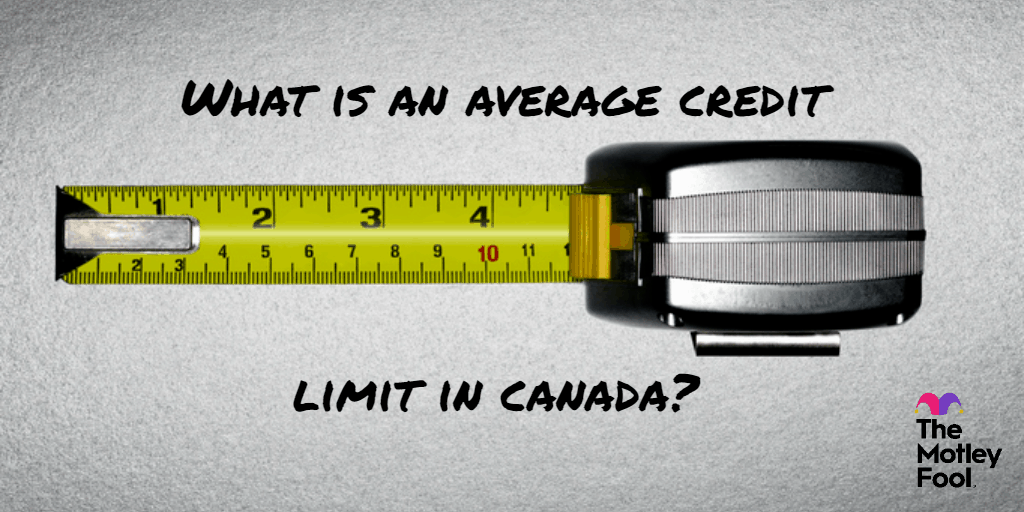Every credit card comes with a credit limit, which is the maximum outstanding balance you can have on your card at any one time. Should you exceed this limit, you could face over-limit fees or even have your account suspended. Credit card issuers place restrictions on borrowers’ spending capacity to minimize default risk. They want to ensure that their clients can comfortably service their card payments each month.
Credit limits vary considerably — not everyone ends up with the same spending restrictions when signing up for a credit card. You may have wondered about your credit limit and how it compares with other card users. Is your card issuer providing you with access to the credit you deserve? Or can you secure a better deal?
What’s the average credit card limit in Canada?
It’s difficult to pinpoint the average credit limit for a typical Canadian. Financial institutions typically don’t release such confidential details to the public, so there aren’t any easy answers. However, according to a Bank of Canada survey, 15% of Canadians have a credit limit under $2,000, and 41% have a $10,000 or higher credit limit.
The survey’s findings indicate that most Canadians have ample access to credit via their credit cards. Where you fit in this range will depend on various factors that influence card issuers’ perception of the riskiness of extending credit to you.
What factors go into determining your credit card limit?
Your card issuer evaluates a wide array of factors when they assign your credit limit. Here are some of the most relevant:
- The length of your credit history
- Your employment status
- The amount of income you earn
- Your total expenses
- The amount of debt you currently carry
- How often you apply for credit products
Your credit score also plays a crucial role in determining your credit limit, as it presents a reliable snapshot of your history with debt. Naturally, if you have a poor credit score, you can reasonably expect to end up with little spending power. Conversely, suppose you possess a solid credit score. In that case, your card issuer will be more inclined to offer you greater access to credit.
It’s worth noting that the criteria used to set your credit limit varies from lender to lender. Each card issuer employs proprietary statistical models that assess the risk of lending to you — some may be more stringent than others.
In addition, the type of credit card you apply for will directly impact your credit limit. For example, premium credit cards offer preset limits that are higher compared to lower-tier cards.
Tip
You can see The Motley Fool's top credit card picks by visiting our comparison of the best credit cards in Canada.
Can you increase your credit card limit?
Yes! If your card’s current limit isn’t sufficient to meet your needs, you can contact your issuer to request an increase. However, you’ll have to meet specific eligibility criteria before they give your spending power a boost. If your financial standing has improved, a credit limit increase may be warranted. But if it has deteriorated, your prospects for extra credit are bleak.
Here are some things card issuers like to see before they approve you for a credit limit increase:
- A higher credit score
- Timely credit card payments
- A higher income
- Less expenses
- Less overall debt
In general, it’s best to wait at least six months before contacting your card issuer to ask for an increase. That should be enough time to accrue some valuable credit experience with your new card and build a stellar payment history. If you handle your credit responsibly, never missing a payment and maintaining a low credit utilization ratio, it may rise naturally over time, too. Card providers periodically review your account and increase your credit limit accordingly — no need to ask (or beg!) for an increase.
Can your credit limit decrease?
Absolutely. Just as your credit limit can soar when your finances are in good order, it can tank if you start experiencing money problems.
Your card issuer is constantly monitoring your credit habits. Suppose they begin to perceive you as a risky borrower. In that case, they won’t hesitate to reduce your available credit to mitigate the risk of you defaulting on your balance. A tarnished credit score, frequently missed payments, and excessive spending can all spur a cut in your credit limit.
If you possess top-notch money management skills, and you’re the proud owner of a perfect credit score, guess what? You can still wake up one day and discover that your card issuer has lowered your credit score! This scenario can emerge if you’ve refrained from using your card for an extended period, typically more than a year. As a result, your card issuer assumes you don’t need a high credit limit and unapologetically reduces it. Yes, you can be penalized for underusing your credit card!
Some offers on The Motley Fool are from our partners — it’s part of how we make money and keep this site going. But does that impact our reviews? Nope. Our commitment is to you. If a product isn’t any good, our review will reflect that, or we won’t list it at all. Also, while we aim to feature the best products available, we do not review every product on the market.
